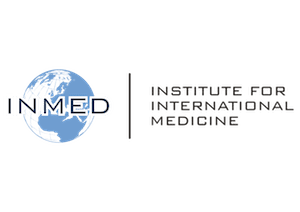Forum Replies Created
-
AuthorPosts
-
 Nelson MorrisParticipant
Nelson MorrisParticipantFood security:
What system-wide changes, in your opinion, would most successfully increase world-wide food security?
After reading the text, it is obvious that world-wide food security is a vastly complicated undertaking. In studying the figure the central element is intervention and policy. So I feel like a good place to start is with the policy of land use. To grow plants or raise protein land is required. However, as the world population increases “agricultural land is increasingly in conflict with infrastructure development” as more people move to cities. A catastrophic loss of available (fertile) land will hinder efforts to increase world-wide food security, even if technology advances. Therefore I think it is imperative for countries to protect their agriculture land by limiting building sizes (small families do not need big houses, limiting office buildings, work from home, etc), seeking alternative building materials, and incentivizing cities to minimize the environmental cost of their urban planning. Although the fruits of these policies will not be immediate, I believe they will allow room to grow more food when further system-wide changes presents themself.
Measles
What do you believe are the most substantial barriers to global measles elimination, and how can these be overcome?After reading the article I feel like the most substantial barrier to global measles elimination is coverage with MCV1 and MCV2. The challenge to increase vaccination rate is probably depends on the socioeconomic status of the country. In countries with low socioeconomic status the challenge might be more in the ability to reach newborns or a lack of education might correlate with a lack of vaccination simply because the mother does not understand the disease and the benefit of the vaccine. To overcome that challenge working with local government to identify and educate populations who might be unaware of vaccinations and when their children need them could help increases the vaccination rate. In higher socioeconomic countries where people are educated a lack of vaccination might be due to a distrust in the medical model and a spread of false information about the safety of vaccinations. To overcome this problem, the scientific community could address the concerns of those who fall in the anti-vax population to build trust in the safety of vaccines.
 Nelson MorrisParticipant
Nelson MorrisParticipantHi, every one. My name is Nelson Morris and I am a second year medical student at KCOM.
1. Your healthcare experience
I went to Chennai, India when I was 17 to provide humanitarian and medical aid to people who lived in leprosy colonies. In college I traveled to rural Nepal to bring medical supplies to a hospital that was destroyed by an earthquake. These experiences made a lasting impression on me, instilling me with the desire to become a physician for people who are critically underserved.2. Why you are taking this course
I am taking this course to better prepare myself for international medicine and gain insight about humanity. I hope to make lasting friendships with you awesome people!3. What are your future plans
My future plans (hopes) are to learn full spectrum family medicine and work in a bilingual hispanic/latino community here in the states where I will raise my family. I also want to practice medicine, serve medical missions, in South and Central America. -
AuthorPosts
